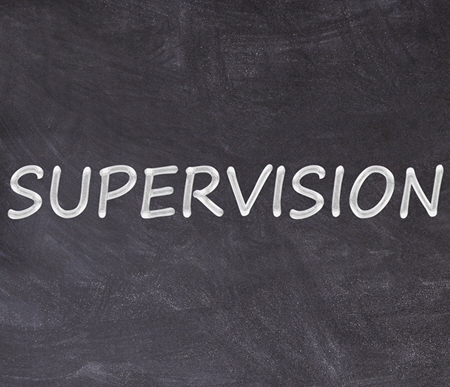Clincial Supervision with Susan L. Hollander, PHD
In-Person and Online Clinical Supervision Psychotherapy
Contact Me Today
Supporting Your Growth, Your Clients, and Your Calling
Clinical supervision is a structured, collaborative relationship where a licensed mental health professional supports the growth, ethical practice, and clinical development of another clinician. Through case consultation, reflective dialogue, and skill refinement, supervision enhances both the effectiveness of your clinical work and your resilience as a practitioner.
Whether you’re working toward licensure or seeking deeper connection and clarity in your ongoing clinical work, supervision is not just a box to check, it’s a space for developmental growth, reflective clinical consultation, and ongoing professional enrichment.
In my Englewood practice, I offer clinical supervision rooted in warmth, integrity, and over 30 years of experience in the field. This work goes beyond oversight; it’s where clinicians feel supported, understood, and empowered to grow in both skill and self-awareness.
Why Seek Clinical Supervision?
Many licensed professional counselors, family therapists, and social workers come to supervision for their supervised hours or to meet licensure goals. But for others, supervision becomes an important part of staying whole, inspired, and effective.
You may be:
- Working in an agency where your clinical supervisor isn’t the right fit
- A solo practitioner feeling the weight of decisions made without consultation
- Taking on clients whose needs, such as developmental disorders, anxiety, or substance use, stretch beyond your comfort zone
- Struggling with feeling stuck, isolation, or emotional fatigue
- Wanting to refine therapy techniques like emotionally focused therapy, or sharpen your diagnostic and treatment planning skills
Wherever you are, clinical supervision will help. It’s where you get to be seen, not just as a therapist, but as a whole person navigating the complexities of this work.
Who I Work With
I provide clinical supervision for a wide range of professionals engaged in clinical training or established in their clinical services. Whether you’re a pre-licensed counselor seeking an individual supervisor or an experienced therapist looking to deepen your practice, supervision offers a space for growth, reflection, and clarity.
I work with:
- New clients entering the field and navigating licensure requirements
- Early-career and seasoned therapists committed to improving communication with clients and colleagues
- Practitioners offering counseling to individuals, couples, or families and wanting support in complex or high-risk cases
- Mental health providers managing emotional fatigue or seeking balance in their work with the patient population
What Supervision with Me Looks Like
With over 30 years of experience as a therapist and clinical director, I’ve guided many clinicians toward more confident, joyful, and resilient practice.
Supervision with me is individualized. Whether you’re seeking individual supervision, group supervision, or online supervision, I provide a supportive space that helps you process client work, reflect on your growth, and fine-tune your clinical skills.
We may explore:
- Role-play scenarios to strengthen your responses in challenging sessions
- Identifying and understanding transference and countertransference
- How to stay grounded and take care of your emotional well-being
- Enhancing communication in your most important relationships, with clients and within your professional circle
- Addressing ethical dilemmas or burnout, especially common for those practicing in person without a team
- Crafting treatment plans that align with each client’s individual goals
This work is more than oversight; it’s encouragement, deep support, and a way to develop your best self as a clinician.
Supervision as Self-Care and Career Growth
The therapeutic relationship is one of the most sacred and sensitive bonds we create. And yet, many therapists carry their work silently, without reflection or backup. In reality, supervision is the anchor that keeps you steady, especially when working with clients experiencing anxiety, depression, or trauma.
Supervision is also where you reconnect with your sense of purpose, prevent burnout, and remember how deeply fulfilling this work is.
Therapists often tell me that supervision helped them become:
- More precise in their clinical assessments
- More confident in sessions
- More connected to their clients and themselves
- More balanced in their lives outside of the therapy room
Whether you’re hoping to become a better listener, understand the whole person in front of you, or find new ways to encourage clients, supervision is where that growth begins.
Clinical Supervision Services Available:
- In office supervision
- Online supervision throughout Colorado
- Individual supervision
- Specializing in therapists working with adults, couples, and families
Why I Offer Clinical Supervision in Englewood
Therapy is not just a job, it’s a calling. And answering that call is exhilarating and exhausting.
When I began offering clinical supervision, I did so because I believe therapists deserve the same support, insight, and compassionate space that they give to others. Every therapist, whether just starting or with many years in, benefits from the guidance of an experienced clinical supervisor who sees their potential and holds space for meaningful change.
In my practice, I create a welcoming environment where therapists feel valued, supported, and empowered to grow, not only in clinical skills but in confidence, balance, and joy.
If You’re Looking for Supervision…
Whether you’re just beginning your journey or are a therapist seeking to deepen your work, I’d be honored to support you.
I invite you to call me at (303) 220-8400. Together, we will explore what’s possible for your practice, your well-being, and your clients.
Let’s talk about how supervision will support your training, deepen your understanding, and help you become the best clinician you can be.
Because even as a therapist, you deserve someone who’s specifically trained to care for you.
I would love to partner with you in your career growth.
Frequently Asked Questions
What should I look for in a clinical supervisor beyond licensure qualifications?
An effective clinical supervisor offers more than the required credentials. We bring curiosity, emotional presence, and a developmental mindset. You’ll want someone who not only understands theory and diagnosis but who will also help you deal with relational dynamics, ethical complexity, and the emotional weight of the work. Fit matters: supervision should feel collaborative, not hierarchical.
How does working with an experienced clinical supervisor benefit seasoned therapists?
Even seasoned clinicians benefit from working with an experienced clinical supervisor who can offer high-level consultation, a reflective lens on long-standing patterns, and fresh perspective on professional dilemmas. For those in solo or private practice, supervision functions as an essential form of accountability, creative brainstorming, and emotional support, especially when working with high-risk or trauma-exposed populations.
Can clinical supervision help prevent burnout in mental health professionals?
Yes! Supervision is a powerful tool for burnout prevention, especially for those in emotionally demanding mental health settings. Supervision provides space to process countertransference, reduce isolation, and reevaluate boundaries before stress becomes depletion. Many clinicians find that having a consistent, reflective space helps them stay grounded and connected to their work.
Is supervision still valuable if I’m not currently working with complex mental health cases?
Absolutely. Supervision isn’t only for when you’re stuck or overwhelmed. It’s a space to refine your voice as a therapist, explore nuance in everyday sessions, and prepare for future challenges. Even with less acute mental health cases, supervision supports your ongoing growth, deepens your interventions, and enhances the therapeutic alliance.



